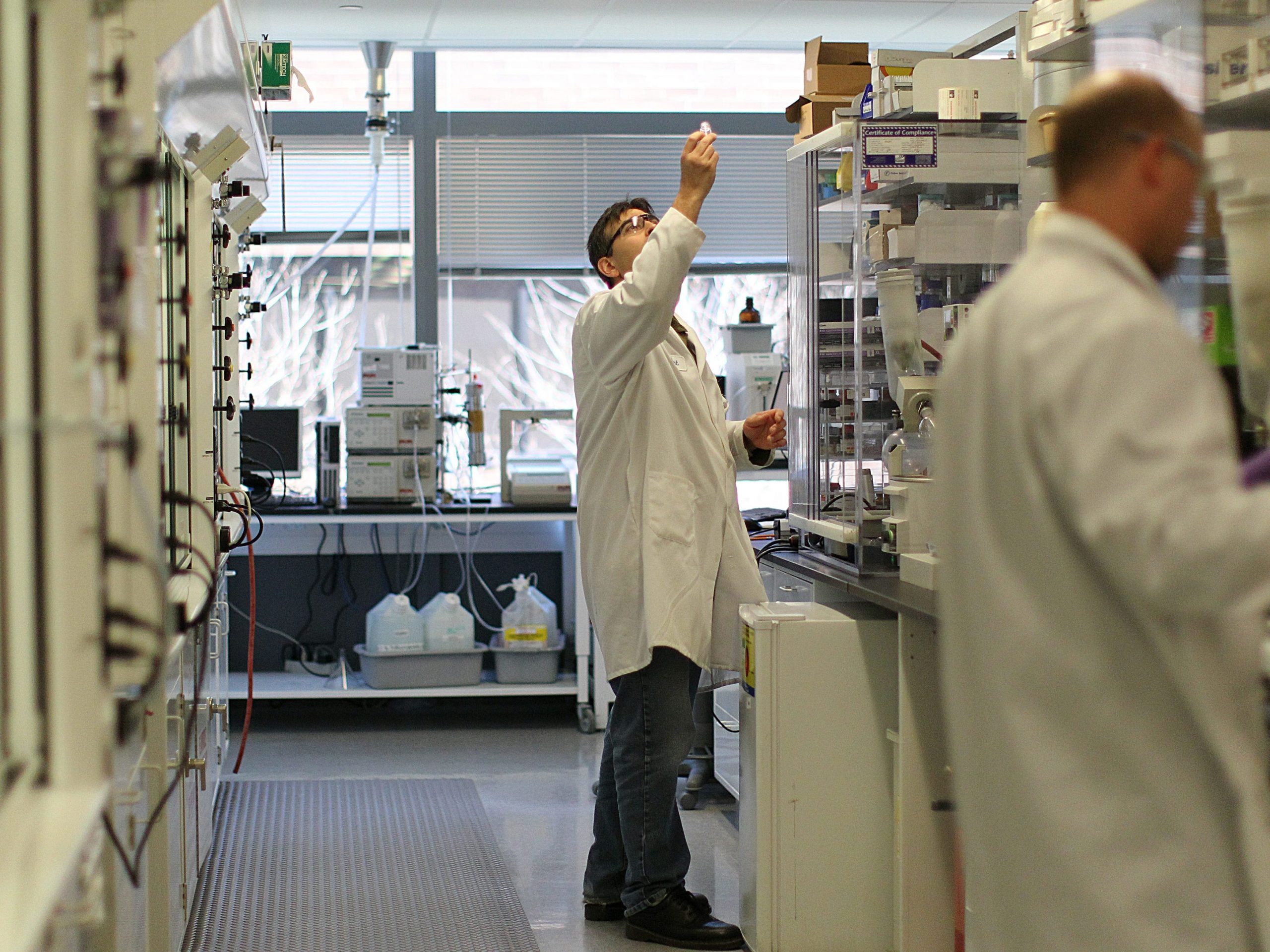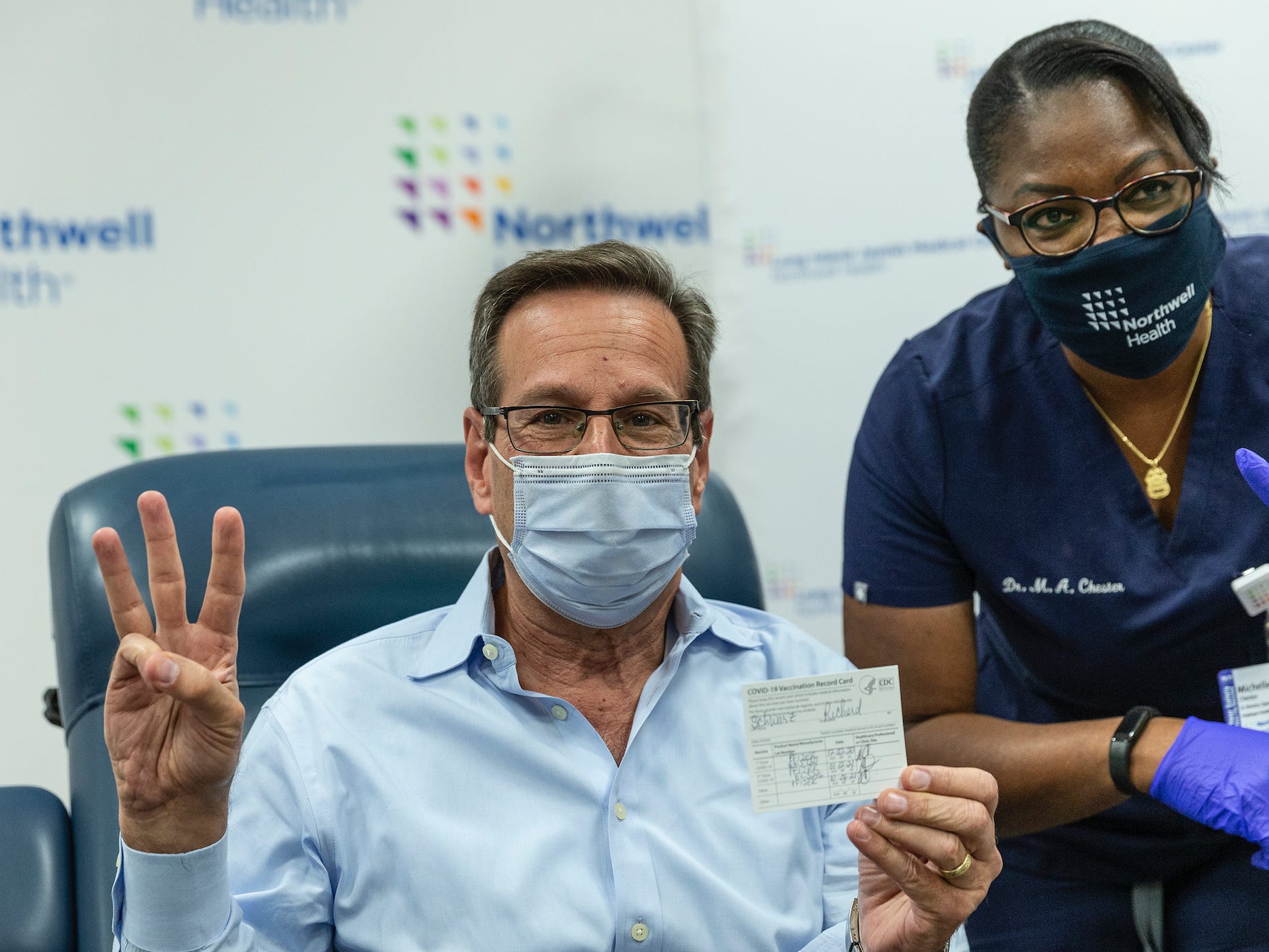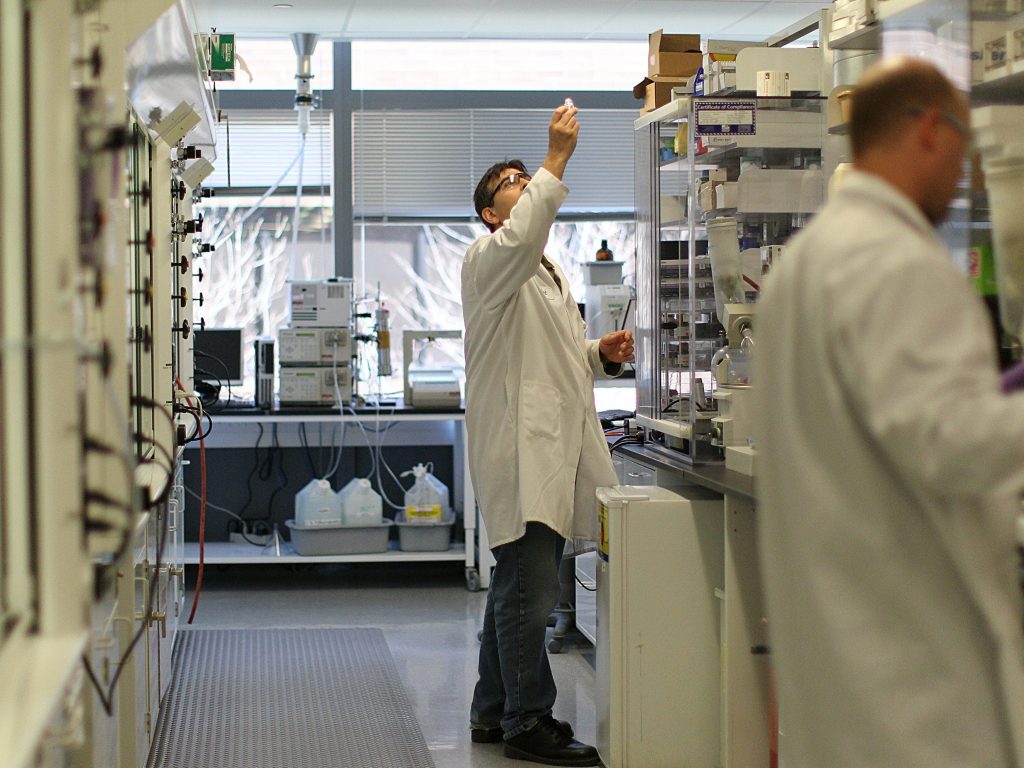Hello,
Welcome to Insider Healthcare. I'm healthcare editor Leah Rosenbaum, and today in healthcare news:
- We got access to the FDA case report about a woman who died while on a controversial Alzheimer's treatment;
- The most common symptoms of Omicron include a cough and fatigue;
- We rounded up what we know about the Omicron variant and vaccines.
If you're new to this newsletter, sign up here. Comments, tips? Email me at [email protected] or tweet @leah_rosenbaum. Let's get to it…

A Biogen employee works in the company's lab.Suzanne Kreiter/The Boston Globe via Getty Images

- Insider got an FDA report about the death of a woman taking a new Alzheimer's drug.
- People taking the drug could have brain swelling or bleeding. Experts say it's easy to miss the signs.
- This could be a concern if Medicare begins reimbursing the drug for millions of people next year.

A passenger who arrived from Italy administers a self-collected nasal swab.Mario Tama/Getty Images

- The CDC just shared the symptoms of the first 43 confirmed Omicron infections in the US.
- Cough, fatigue, congestion, and a runny nose were the most commonly reported symptoms.
- Europe has also had mild cases, but it's too soon to act like Omicron is the common cold.

Dr. Richard Schwartz celebrates after receiving his COVID-19 Pfizer vaccine booster on October 6, 2021.Lev Radin/Pacific Press/LightRocket via Getty Images

Here's the data we have so far on the Omicron variant versus our vaccines — what scientists have found, and what remains unanswered
- Lab studies found antibodies from vaccines bind less well to Omicron compared to previous variants.
- These studies are done using blood samples, and some are estimates using similar viruses, not Omicron.
- Most experts predict vaccines, particularly after boosters, will still offer protection against severe COVID-19.
More stories we're reading:
- The Metropolitan Museum of Art is dropping the 'Sackler' name after the Purdue Pharma family agreed to pay $4.3 billion over opioid harms (Insider)
- A new research effort finds many cancer studies can't be replicated (Science News)
- Scientists have developed a hi-tech sleeping bag that could stop astronauts' eyeballs from squashing in space (Insider)
- Children have been swept away in storm drains across the US during big floods (ProPublica)
-Leah
Read the original article on Business Insider
